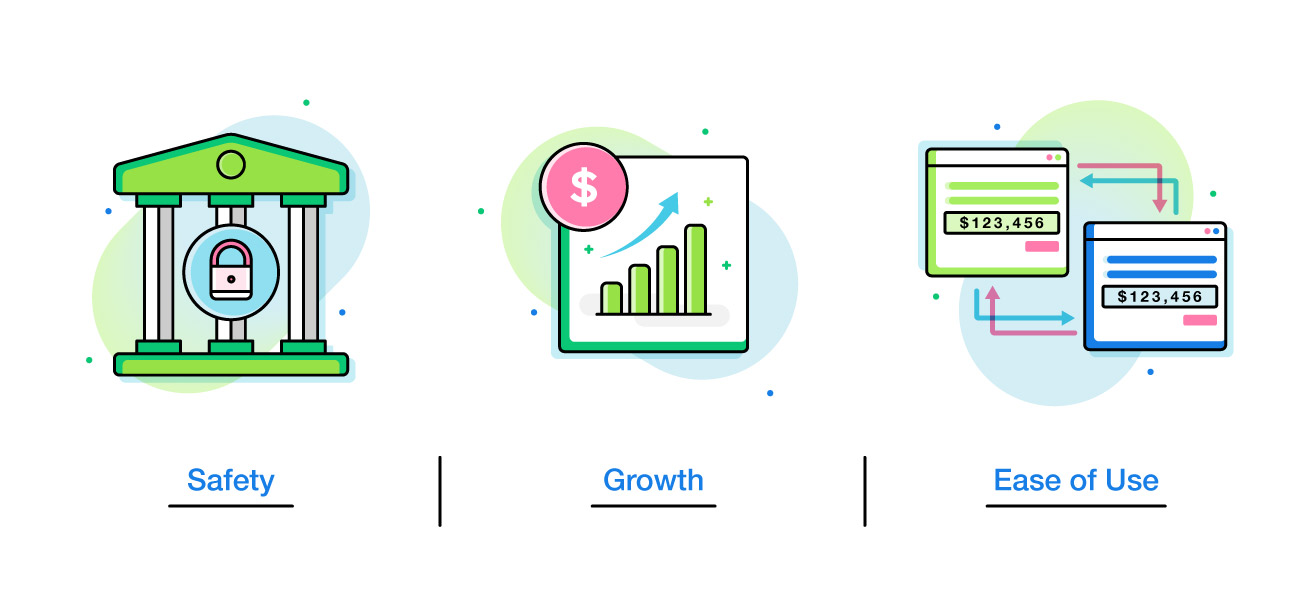The Benefits of a Savings Account
In today’s fast-paced world, it is crucial to have a financial safety net. One of the best ways to achieve this is by opening a savings account. A savings account offers numerous benefits that can help you secure your financial future. In this article, we will explore the advantages of having a savings account and how it can positively impact your life.
Higher Interest Rates
When compared to a regular checking account, savings accounts generally offer higher interest rates. This means that the money you deposit into your savings account will grow over time. The interest earned is based on the account balance and the annual percentage yield (APY) offered by the bank. By taking advantage of these higher interest rates, you can watch your savings grow steadily.
Safety and Security
A savings account provides a safe and secure place to store your money. Unlike keeping cash at home or carrying it around, a savings account ensures that your funds are protected. Banks have robust security measures in place to safeguard your deposits. Additionally, savings accounts are typically insured by the Federal Deposit Insurance Corporation (FDIC) in the United States, up to the maximum allowed by law. This means that even if the bank were to face financial difficulties, your money would still be protected.
Easy Access to Funds
While a savings account is primarily meant for long-term savings, it still offers easy access to your funds when needed. Most banks provide account holders with various options to withdraw money, such as ATM withdrawals, online transfers, or in-person visits to the bank. This flexibility ensures that you can access your savings whenever an unexpected expense arises.
Financial Goal Setting
Having a savings account allows you to set and achieve financial goals. Whether you are saving for a down payment on a house, a dream vacation, or an emergency fund, a dedicated savings account can help you stay focused. By regularly depositing money into your account, you can track your progress and watch your savings grow closer to your desired target.
Teaching Financial Discipline
A savings account is an excellent tool for teaching financial discipline. By setting aside a portion of your income regularly, you develop the habit of saving. This practice can help you become more conscious of your spending habits and make wiser financial decisions. Over time, you will learn to prioritize saving and build a strong foundation for your financial well-being.
Overdraft Protection
Some savings accounts offer overdraft protection linked to your checking account. This means that if you accidentally overdraw from your checking account, the bank will automatically transfer funds from your savings account to cover the shortfall. This feature can save you from costly overdraft fees and provide peace of mind.
Compound Interest
One of the most powerful advantages of a savings account is compound interest. Compound interest allows your money to grow exponentially over time. As the interest you earn is added to your account balance, future interest calculations are based on the increased amount. This compounding effect can significantly boost your savings in the long run.

A savings account offers a multitude of benefits that can help you achieve financial stability and reach your goals. With higher interest rates, safety and security, easy access to funds, and the ability to teach financial discipline, a savings account is an essential tool for managing your finances. By taking advantage of these benefits, you can secure your financial future and enjoy peace of mind.
Frequently Asked Questions about the Benefits of a Savings Account
1. What is a savings account?
A savings account is a type of bank account where you can deposit and store your money while earning interest on the balance.
2. What are the benefits of having a savings account?
A savings account offers several benefits, such as:
Earning interest on your savings
Providing a safe place to store your money
Easy access to your funds
Building an emergency fund
Helping you achieve your financial goals
3. How does a savings account earn interest?
A savings account earns interest on the balance you have deposited. The interest rate is determined by the bank and is usually calculated on a daily or monthly basis.
4. Are savings accounts safe?
Yes, savings accounts are generally considered safe because they are insured by the government up to a certain amount (e.g., FDIC-insured in the United States). This means that even if the bank fails, your money is protected.
5. Can I access my money easily from a savings account?
Yes, most savings accounts provide easy access to your funds. You can withdraw money from an ATM, make online transfers, or visit the bank branch to access your savings.
6. How much money should I keep in a savings account?
It is recommended to keep at least three to six months’ worth of living expenses in a savings account as an emergency fund.
7. Can I use a savings account for long-term goals?
While savings accounts are great for short-term goals, such as saving for a vacation or a down payment, they may not provide the highest returns for long-term goals. Consider other investment options for long-term financial goals.
8. Are there any fees associated with savings accounts?
Some savings accounts may have fees, such as monthly maintenance fees or fees for excessive withdrawals. It’s important to read the account terms and conditions to understand any associated fees.
9. Can I open multiple savings accounts?
Yes, you can open multiple savings accounts with different banks or even the same bank. It can help you organize your savings for different purposes or take advantage of higher interest rates offered by different banks.
10. How can I open a savings account?
You can open a savings account by visiting a bank branch or applying online. You will need to provide identification documents, such as a valid ID and proof of address, and complete the necessary application forms.




